- Recall the
2-phase commit protocol:
- Phase 1:
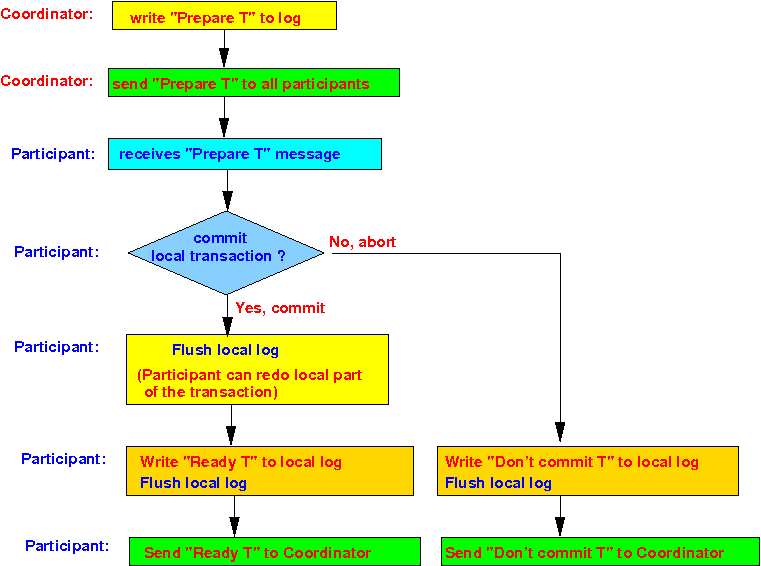
- Phase 2:
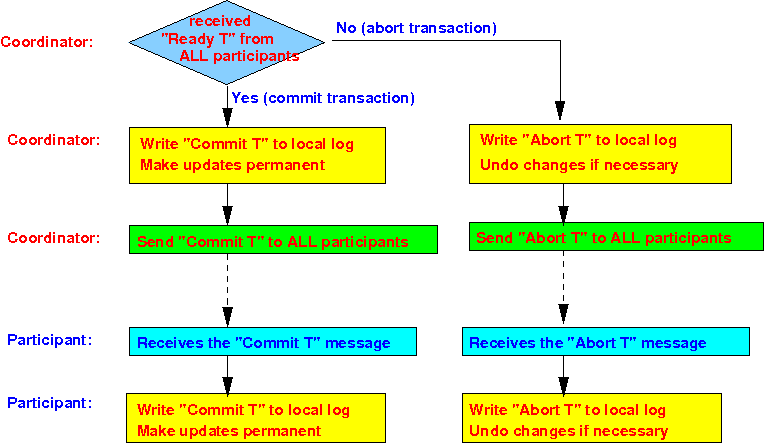
- Phase 1:
- Effect of
a failure:
- Some nodes (processors) will be in a different state than other processors
- Goal of a
receovery operation:
- Ensures that
all nodes (processors)
are in the same state:
- All nodes will commit the transaction or
- All nodes will abort the transaction
- Ensures that
all nodes (processors)
are in the same state:
- State of a
distributed transaction:
- (Global) state of the
transaction =
the state of the
distributed transaction as
agreed on by
all nodes (processors)
- (Global) state of the
transaction =
the state of the
distributed transaction as
agreed on by
all nodes (processors)
- The state of a
distributed transaction is
one of the following:
- Committed
- Aborted
- Fact:
- Sometimes,
a node (processor) will
have sufficient information
locally
to
determine the
(global) state of the
transaction
In this case:
- The node can take action to redo/undo the transaction immediately
- Other times,
a node (processor) will
have
insufficient information
locally to
determine the
(global) state of the
transaction
In this case:
- The node must contact other node(s) to find out the state of the transaction !!!
- Sometimes,
a node (processor) will
have sufficient information
locally
to
determine the
(global) state of the
transaction
- Fact:
- The state of the distributed transaction is recorded in the (local) log of a node (= coordinator or participant)
-
Last log record
for the transaction in a
node
(= coordinator or
participant) was
Commit T:
- The state (global decision) of
transaction T
must have been
committed:
- If the node was a
coordinator, the
crash must have
happened after this point in
time:
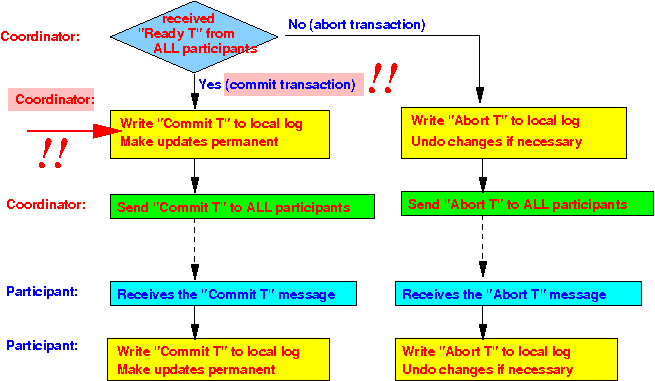
- If the node was the
participant, the
crash must have
happened after this point in
time:
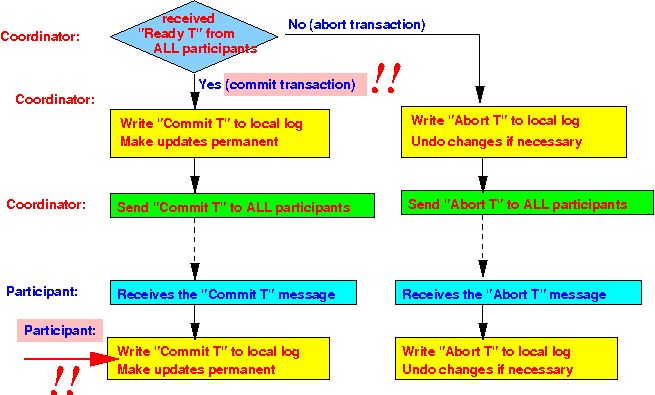
In all cases, the global decision was commit.
- If the node was a
coordinator, the
crash must have
happened after this point in
time:
- Recovery procedure:
- "Redo the transaction T"
Note:
- If we use undo logging, we don't have to do anything to "redo a transaction" !!!
- The state (global decision) of
transaction T
must have been
committed:
-
Last log record
for the transaction in a
node
(= coordinator or
participant) was
Abort T:
- The state (global decision) of
transaction T
must have been
aborted:
- If the node was a
coordinator, the
crash must have
happened after this point in
time:
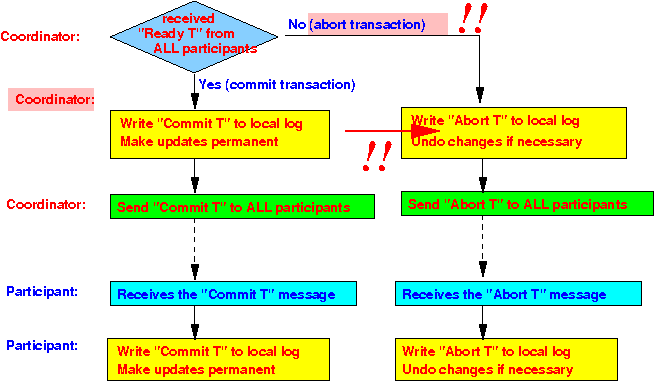
- If the node was the
participant, the
crash must have
happened after this point in
time:
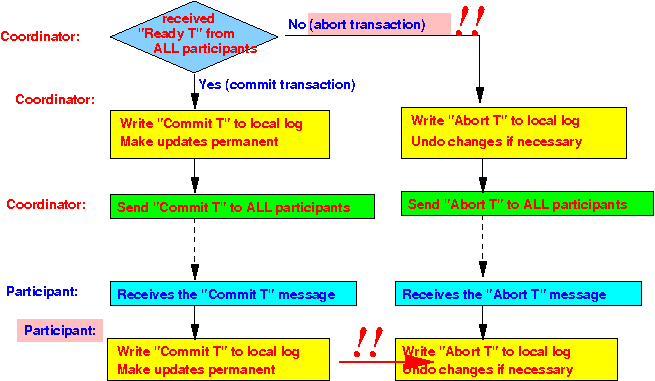
In all cases, the global decision was abort.
- If the node was a
coordinator, the
crash must have
happened after this point in
time:
- Recovery procedure:
- "Undo the transaction T"
Note:
- If we use redo logging, we don't have to do anything to "undo a transaction" !!!
- The state (global decision) of
transaction T
must have been
aborted:
-
Last log record
for the transaction in a
node
(= coordinator or
participant) was
Don't commit T:
- The state (global decision) of
transaction T
must have been
aborted:
- The crash must have
happened after this point in
time
(during phase 1):
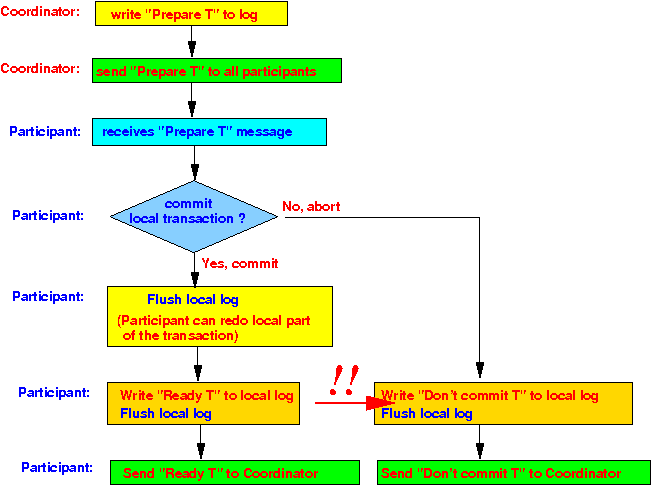
- The
global state that will be
reached must have
been: abort:
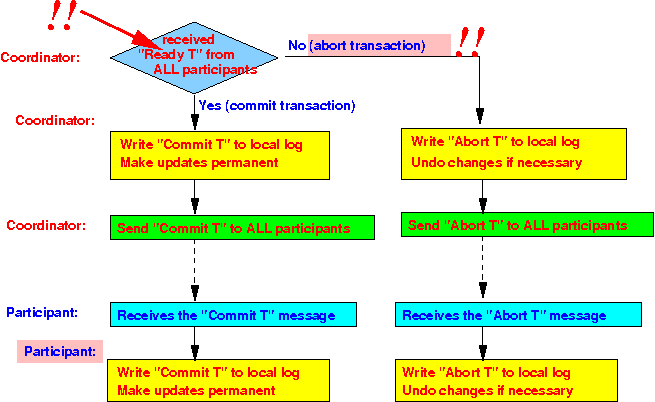
- The crash must have
happened after this point in
time
(during phase 1):
- Recovery procedure:
- "Undo the transaction T"
Note:
- If we use redo logging, we don't have to do anything to "undo a transaction" !!!
- The state (global decision) of
transaction T
must have been
aborted:
- (Hard case)
Last log record
for the transaction in a
node
(= coordinator or
participant) was
Ready T:
- The state (global decision) of
transaction T
cannot be
determined, because:
- The crash must have
happened after this point in
time
(during phase 1):
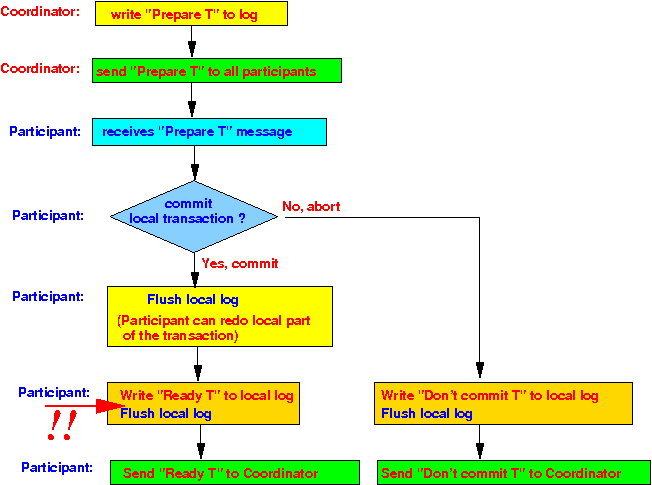
- The
global state that can be
reached
can
be: commit:
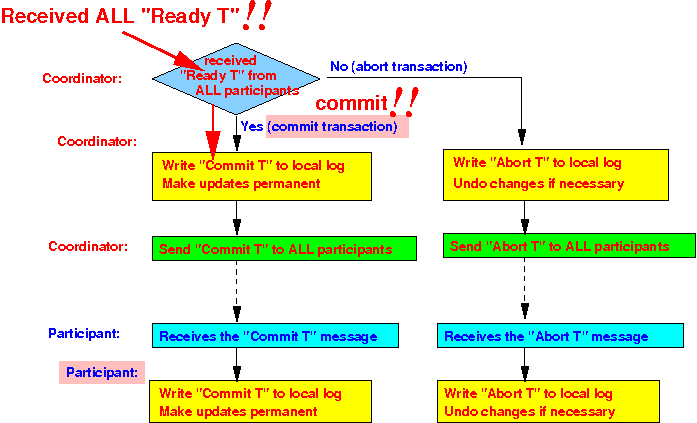
But also: abort:
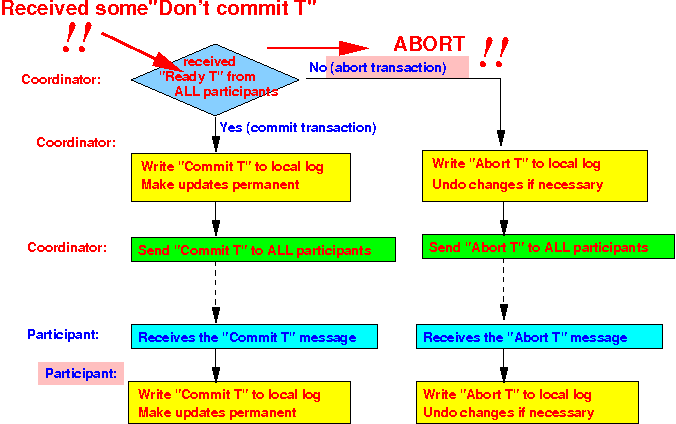
- The crash must have
happened after this point in
time
(during phase 1):
- Recovery procedure:
if ( the coordinator is operational ) { Ask the coordinator for the global decision; If ( decision == commit ) { "Redo" transaction T; } else { "Undo" transaction T; } } else { Done = false; for ( each participant P other than myself ) do { if ( Done ) { exit; } if ( the P is operational ) { Ask P for its local decision; If ( decision == commit ) { "Redo" transaction T; Done = true; // Final ! } else if ( decision == abort ) { "Undo" transaction T; Done = true; // Final } else // P's local state was at best "Ready T" { keep searching... } } } if ( ! Done ) { Wait for the coordinator to come back on line.... } }
- The state (global decision) of
transaction T
cannot be
determined, because:
- Finally:
a node/processor has
no record of the
transaction T
- The crash must have happened
before this
point in time:
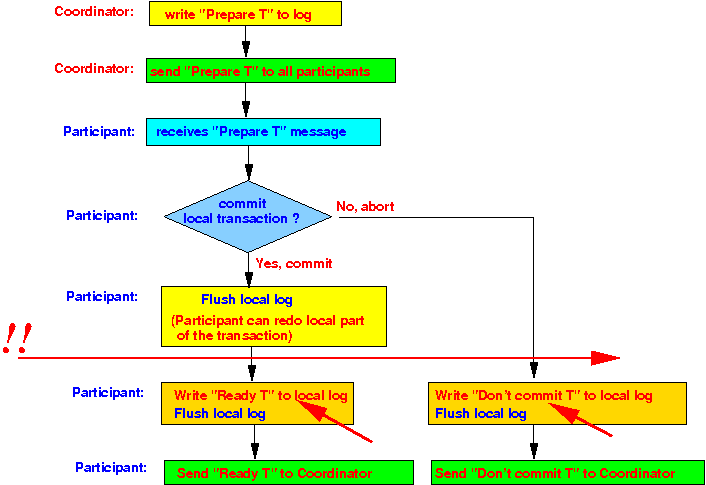
- Fact:
- It's always safe to
abort an
incomplete (uncomitted) transaction
unilaterally
(because the updates has not yet been made permanent -- the undo logs can clean up an incomplete (uncomitted) transaction
- It's always safe to
abort an
incomplete (uncomitted) transaction
unilaterally
- Recovery procedure:
- Enter "Abort T" into
the local log
- We need to do this to reply to queries on the state of transaction T
- "Undo the transaction T"
- Enter "Abort T" into
the local log
- The crash must have happened
before this
point in time: